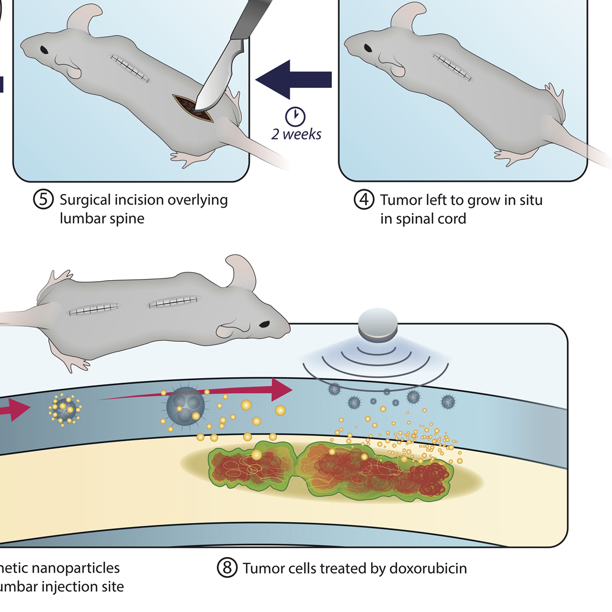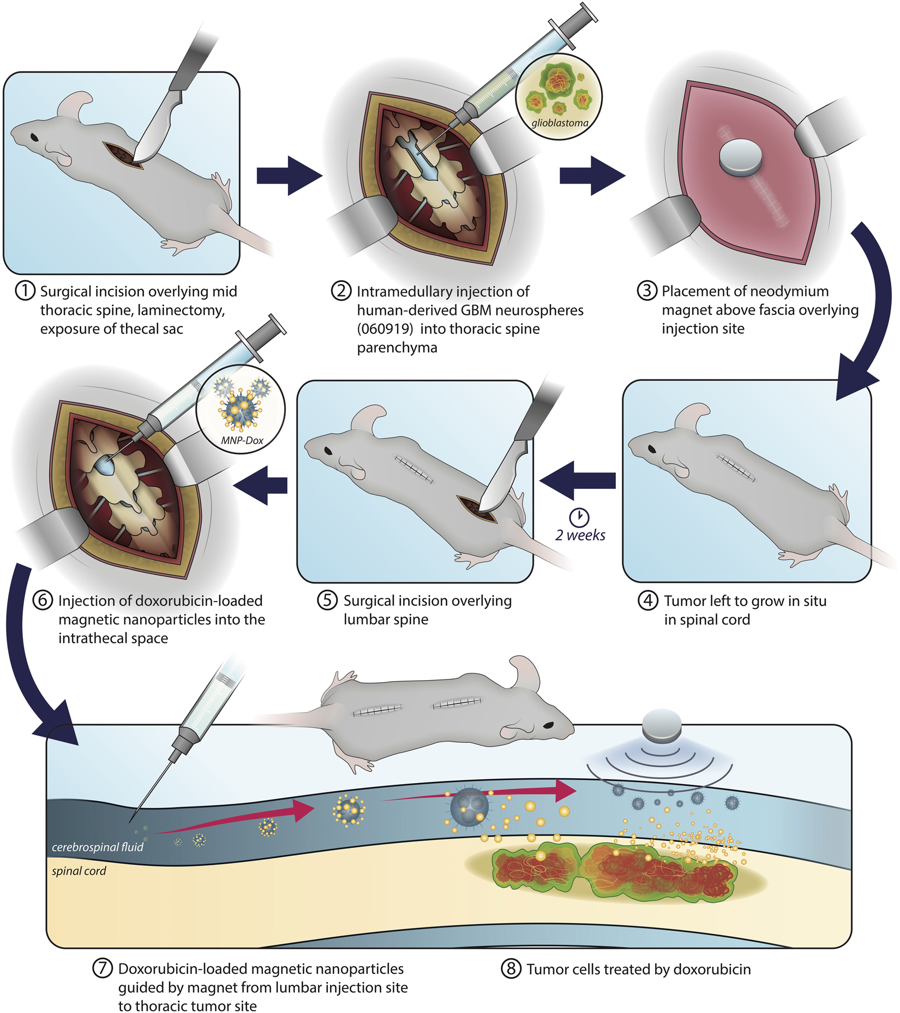Medical device and MedTech insights, news, tips and more
Magnetic Surgical Cement Pulls Chemotherapy Drugs across Blood-Brain Barrier into Spinal Tumors
August 6, 2018

Patients with spinal fractures caused by tumors or osteoporosis usually undergo a procedure called kyphoplasty, where the fracture is filled with surgical cement. While kyphoplasty can stabilize the bone, cancer patients are still often left with spinal column tumors that are very hard to reach with conventional chemotherapy, which has to cross the blood-brain barrier when delivered intravenously.
Now, researchers at the University of Illinois at Chicago report in the journal PLOS ONE, that by adding magnetic particles to surgical cement used to heal spinal fractures, they could guide magnetic nanoparticles directly to lesions near the fractures. Nanoparticles bound to various drugs have been used to target drugs to specific locations or types of cells in the body. Most commonly, this is achieved by binding a minute amount of drug to the nanoparticle, which is designed to also bind to a specific type of cell, such as a cancer cell.
“By modifying the kyphoplasty bone cement, we can both stabilize the spinal column and provide a targeted drug delivery system. This is a very promising technology as it has the potential to become a surgical option for patients with primary spinal column tumors or tumors that metastasize to the spinal column,” said Steven Denyer, a third-year medical student in the UIC College of Medicine and a co-lead author on the paper.
Using a pig model to study the magnetically-guided drug delivery system, Denyer and colleagues were successfully able to steer magnetic nanoparticles to the magnetic cement in the animal’s spinal vertebrae. In future studies to test the efficacy of this technique on treating spinal column tumors, the magnetic nanoparticles would be bound to tiny amounts of chemotherapy drugs.
“Our study provides an in vivo proof-of-concept that this novel drug delivery system can help treat underlying causes of spinal fractures in addition to providing structural support,” said Abhiraj Bhimani, a fourth-year medical student in the UIC College of Medicine and a co-lead author on the paper.
Steven Papastefan, Pouyan Kheirkhan, Tania Aguilar, Jack Zakrzewski, Clayton Rosinski, Akash Patel, Saavan Paten, Victoria Zakrzewski, Akop Seksenyan, Gail Prins and Dr. Ankit Mehta from the University of Illinois at Chicago are co-authors on the paper.
Denyer receives research support from the Hispanic Center of Excellence at UIC and Bhimani is a James Scholar student for UIC College of Medicine class of 2019. This work was supported by the department of neurosurgery at the University of Illinois Hospital.
Read More at the Source: Magnetic surgical cement heals spinal fractures, provides targeted drug delivery | UIC Today
By: Pouyan Kheirkhah, Steven Denyer, Abhiraj D. Bhimani, Gregory D. Arnone, Darian R. Esfahani, Tania Aguilar, Jack Zakrzewski, Indu Venugopal, Nazia Habib, Gary L. Gallia, Andreas Linninger, Fady T. Charbel & Ankit I. Mehta
 A Speciality Recruiting Firm Exclusively Servicing The Medical Device Industry
A Speciality Recruiting Firm Exclusively Servicing The Medical Device Industry
Legacy MedSearch has more than 30 years of combined experience recruiting in the medical device industry. We pride ourselves on our professionalism and ability to communicate quickly and honestly with all parties in the hiring process. Our clients include both blue-chip companies and innovative startups within the MedTech space. Over the past 10 years, we have built one of the strongest networks of device professionals ranging from sales, marketing, research & , quality & regulatory, project management, field service, and clinical affairs.
We offer a variety of different solutions for hiring managers depending on the scope and scale of each individual search. We craft a personalized solution for each client and position with a focus on attracting the best possible talent in the shortest possible time frame.
Are you hiring?
Contact us to discuss partnering with Legacy MedSearch on your position.

